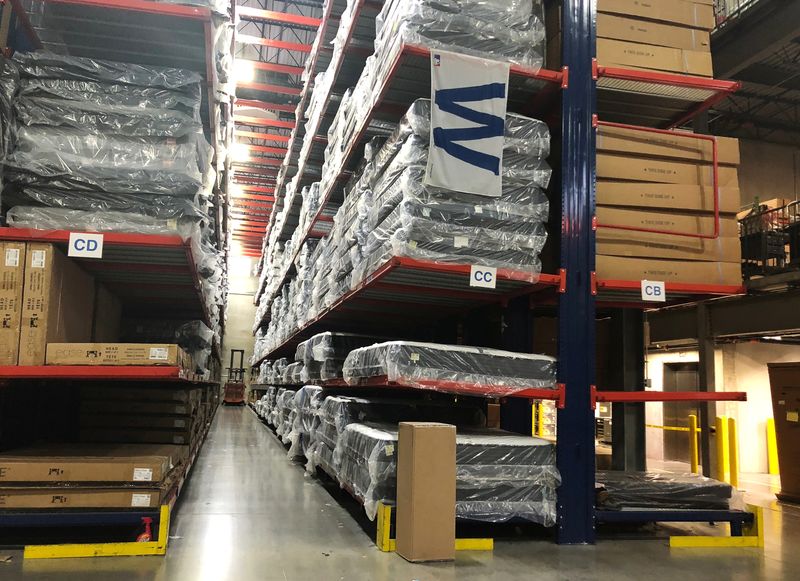WASHINGTON (Reuters) - U.S. business inventories fell for a second straight month in November amid declines in retail and wholesale stocks, which could see inventory investment subtracting from economic growth in the fourth quarter.
Business inventories dipped 0.1% after a similar drop in October, the Commerce Department's Census Bureau said on Wednesday. The drop in inventories, a key component of gross domestic product, was in line with economists' expectations. Inventories increased 0.4% on a year-on-year basis in November.
Economists expect business inventories to be a drag on GDP growth in the fourth quarter. Growth estimates for the October-December quarter are as high as a 2.2% annualized rate. Private inventory investment contributed 1.27 percentage points to the economy's 4.9% growth pace in the third quarter.
Businesses are holding back on inventory accumulation in anticipation of slower demand this year following 525 basis points worth of interest rate hikes by the Federal Reserve since March 2022. The government is scheduled to publish its advance estimate of fourth-quarter GDP next Thursday.
Retail inventories fell 0.1% in November as estimated in an advance report published last month. They were unchanged in October. Motor vehicle inventories advanced 1.8%, rather than 1.7% as estimated last month. They increased 2.3% in October.
Retail inventories excluding autos, which go into the calculation of GDP, declined 0.9%. They were previously reported to have decreased 0.8%. They dropped 1.0% in October.

Wholesale inventories fell 0.2%, while stocks at manufacturers gained 0.1%.
Business sales increased 0.2% in November after declining 1.1% in October. At November's sales pace, it would take 1.37 months for businesses to clear shelves, unchanged from October.